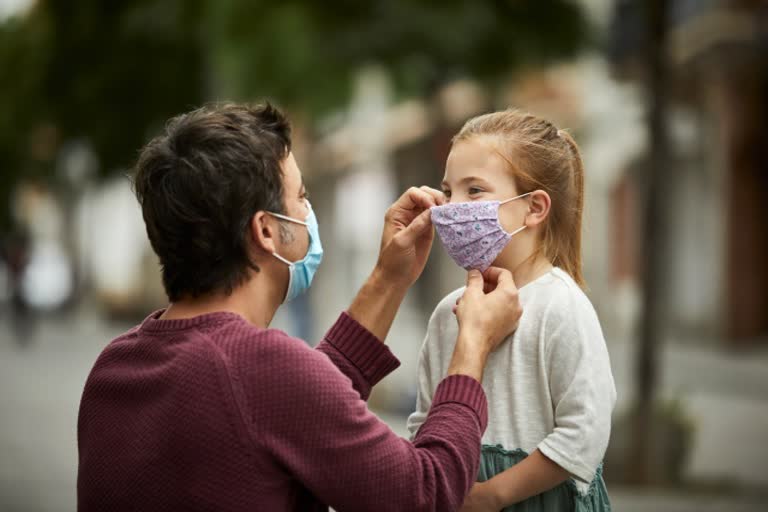The reason for worry is that children are not in the eligible group for vaccination. This puts them at risk as in any pandemic, the virus keeps looking for the susceptible population but the good news is that children, even if affected will be asymptomatic 90% of the time. Only10 % of them would need admission and out of that only 2-5 % of them would require oxygen therapy or a higher level of pediatric medical support.
As a parent, how you can protect your child?
By ensuring that everybody around that child is vaccinated and by doing this you create a protective ring around the child, where the virus cannot get an entry and infect children. Once the children are infected, they could remain asymptomatic but could spread the infection. They can act as super-spreaders because people will sit with them, hold them very close and cuddle them. Small children are passed from lap to lap and shoulder to shoulder. They can become potential amplifiers of the infection without suffering it themselves. Children below 5 years don’t wear masks as they are uncomfortable with them. In children below 2 years, and in those with disabilities, masks can be a choking hazard.
What has protected children from this deadly infection?
As said earlier, 90% of children are asymptomatic because they have a smaller number of ACE 2 receptors (the site where the virus attaches and gains entry into the body). They have a well-primed immune system because children also receive as much as 20-25 vaccines during the first 2 years of their life as well as suffer a number of viral infections. In them, both the B cell and T cell immunity are very good. Also, children do not have other comorbidities that adults have like diabetes, hypertension, etc. They also have an excellent regeneration of the cell linings of their gut or respiratory system and therefore they heal much faster than adults.
Understanding “Reverse Quarantine”.
The parents have to be the caretakers of the children and the grandparents can be put into reverse isolation. So instead of isolating the child and locking them into one room which is detrimental for their development, it is best to put the older people who are not directly the caretakers of the child into reverse isolation. Normally we could have multiple caretakers of the child; the grandparent may give one meal, the maid may give another, and parents give the third. During the 10-day infectious period, you should have only one designated caretaker, preferably the parent, who would then practice COVID appropriate behavior which is masking, washing of hands, and sanitization.
Also Read: On Children Adapting Quickly To COVID Appropriate Behavior.
Scheduling of activities:
- Time to study
- Time to play
- Time for physical activities
- Time for bonding with family and friends
- Allotting a fixed place to study
- Eating at a particular time
- Sleeping at a particular time
Encouraging socialconnection.
Many times, we see that children who face connectivity issues often feel left out in comparison to their friends. They may also feel bad if they do not have access to the gadgets due to lower incomes or need to share a gadget, or due to the individual variation among schools in their way of imparting online education. There is a big role that panchayats or the local bodies can play by organizing common viewing sessions for the kids in small groups of 5 or 10 followings COVID appropriate behavior. Even residential societies and affluent gated communities can take the initiative of organizing a group session on the terrace for the children of their domestic help. These activities have already been started at many localities. It is time that we all make sure that this new way of life is made accessible and amenable so that everybody gets the benefit.
